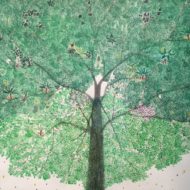In a presentation given yesterday at Picnic for the Bloggers Lab, organized by the European Journalism Centre, Ethan Zuckerman brought up an interesting concept that has quite remotely been discussed over the internet for a while now. Today we are all enjoying this second step of the web evolution, the web 2.0, a read/write space …
Continue reading “PICNIC 08 – “Homophily Can Make You Stupid” by Ethan Zuckerman”
